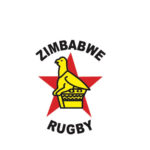
The Women Sables’s return to competitive rugby on the continent has had two false starts as they have been four successive defeats by Zambia and Uganda. A deeper matrix of reasons exists that has seen our pride and jewels the Women Sables falter in four starts. The last 4 games whilst reading a disappointing score board, have been an awakening for the rugby and general sports lovers as a it reignited the debate on the factors that inhibit women’s participation in sports in the pre COVID-19 and post Covid times.
The Women’s Rugby Committee Chairperson Ms Abigail Mnikwa said she and her committee are fully cognisant of the challenges the Women Sables are facing and they have gone back to the drawing board to stem the bad run of results by instituting short term and long term mitigation measures. In the immediate and short term, she said “ we are looking to increase women participation in rugby by intensifying our recruitment drive in the schools and have more schools playing rugby”.
She said plans are at an advanced stage to set up a High performance squad for both versions of the game fifteens and sevens. This will see the players playing rugby throughout the year and their diet and skills constantly refined and fine tuned to the style of play of the team.
Godwin Murambiwa the Head of the Union technical committee conceded that the women Sables results have thus far not been impressive. He urged the technical team to introspect and have a holistic appreciation of the girl child and her opportunity to learn skill sets in rugby. Murambiwa highlighted the endemic factors that impinge on the girl child as she transitions into adulthood and the ‘archaic’ traditional pressures of early marriages. He bemoaned the prevalent traditional practise of marrying off the girl child early as this limits if not extinguish any embers of hope of advancement in her chosen sport. He urged parents and the communities to keep the girl child in school and offer alternative sources of employment such as sport.
He said the early child pregnancies and subsequent early marriages are taking away some of the rugby talent from the fields too soon. He said this is compounded by the fact that “…from a tender age the girl child has lacked access to opportunities to play rugby as it has been perceived to be a dangerous sport”.
He added that the social stigma, discrimination based on the real or perceived sexual orientation and gender identity of women in rugby also discouraged the talented players from pursuing their rugby careers. He added that the retention of women in rugby has also been affected by the decreased quality of experience for the women. He said quality, trained coaches are lacking in most communities, a situation he said the Union is dealing with.
The Union has instituted deliberate and conscious efforts to capacity build within the women folk by having a minimum of 30% of all Rugby course participants being women. He bemoaned the lack of positive role models as having adversely affected the growth and attraction of women to rugby in the country. “ The role models are few and far in-between”, said Murambiwa. He praised the Rugby Africa’s Unstoppables series as it made many realize just how women of courage in rugby they were and how they broke and were breaking barriers and scaling the dizzy heights of rugby in their local communities, region and Africa and the world.
With such a prognosis for the women game given these debilitating factors that militate against women’s participation in rugby, the President of the Zimbabwe Rugby Union Aaron Jani has set up a scholarship programme for young women in rugby across the country. The girls will be selected through the provinces and seconded to the national team coaches. Their tuition fees and sanitary ware requirements will be catered for under the scholarship programme. Those who have finished school will have their tertiary education fees paid for and some corporates friendly to the rugby community have been approached to offer internship opportunities to the women in rugby. He urged parents and guardians to support the girl child in her sporting career just as they would the boy child. He said through the ZRU training and education workforce, all World Rugby courses held within the ambit of the ZRU must have no less than 30% of the participants as women.
All Senior men’s teams must have a women’s team that will play in the women’s section of the league and the men’s sides will co-opt the women coaches into their coaching ranks and coach with them so they improve on their coaching skills. Murambiwa reiterated that the more rugby quality experiences by experienced coaches, the women are given on the field the better they will become and the more they will be enticed to play and stay in the game for longer. The women’s game needs a concerted and multi-sectoral involvement to shrug off the constraints the women face in taking up sport and rugby. The more women participate in sports and rugby in particular the larger the pool we will have to select the National team players from.
